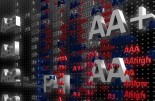Iris van de Looij: European investment-grade bonds appear more appealing
Iris van de Looij: European investment-grade bonds appear more appealing

The latest issue of Financial Investigator looks ahead to H2. Below InsingerGilissen explains their view of the second half of 2024.
Iris van de Looij, Head Investment & Client Solutions at InsingerGilissen, looks ahead to the second half of the year.
What is the economic outlook for the rest of 2024?
‘Amidst easing global inflation, surprisingly resilient growth, and elections in Europe and the US, the global economic outlook is marked by contrasts and shaped by powerful geopolitical fault lines, including Russia’s invasion of Ukraine, tensions in the Middle East, and the November US presidential vote, which could significantly impact US-China relations. The global investment outlook is likewise far from symmetrical.
In the eurozone, the ECB’s first interest-rate cut since September 2019 is expected to prove supportive, with further cuts anticipated over the next six months. By comparison, stickier inflation in the US – and a subsequent delay to the start of the Fed’s rate-cutting cycle, now likely to commence around the end of 2024 – is contributing to economic deceleration. That is expected to be a drag on some US-dominated asset classes, such as high-yield bonds.
We expect the eurozone economy to expand by more than 1% this year, which is up from our earlier forecast and slightly above current consensus. Meanwhile, we have lowered our full-year forecast for the US economy to 2%, slightly below current consensus.’
What are the biggest opportunities and threats for investors?
‘We remain slightly overweight on equities overall – with our single greatest exposure to US equities, reflecting longer-term megatrends in areas such as artificial intelligence. We also continue to maintain our global small-cap equity position, reflecting attractive valuations and the favourable economic backdrop.
By comparison, we remain slightly underweight on European equities. While the fundamental outlook is improving in Europe and a case could be made that increased exposure to European equities is now warranted, but political uncertainty could increase in the near term, given the potential ramifications of recent European elections and upcoming French elections. Reflecting our commitment to seek to protect and grow client wealth we will maintain our slight underweight on European equities and reassess once current uncertainty clears.
Meanwhile, growth in the massive Chinese economy appears to be stabilizing. However, China continues to grapple with structural challenges such as a poor demographic outlook and property sector crisis. Other emerging markets such as India, however, continue to have solid long-term potential. That mixed picture is one of the reasons why, overall, we are neutral on emerging-market equities.
Global high-yield valuations are currently expensive, while European investment-grade bonds appear more appealing.
If eurozone rates were to fall significantly below US rates, the euro would risk depreciating versus the US dollar, as exchange rates tend to be driven in the near term by interest-rate differentials. If that were to happen, import-price inflation would accelerate in the eurozone, which would put the ECB’s inflation objectives at risk.
We expect the euro to hold steady versus the US dollar in the near term, with some recovery anticipated on longer horizons.
Gold may currently be slightly overvalued but continues to serve as a valuable strategic hedge, as do broad commodities, given geopolitical risks.’
Other H2 outlooks you can read here.










